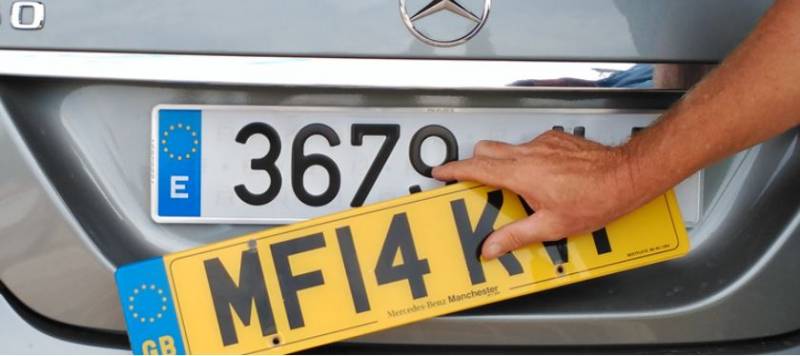Register a Foreign Vehicle in Spain: Legal Demands and Expenses
Register a Foreign Vehicle in Spain: Legal Demands and Expenses
Blog Article
Typical Difficulties Encountered During Foreign Car Registrations and Just How to Overcome Them
Navigating the intricacies of international lorry enrollments can be a daunting job, fraught with obstacles that differ substantially across territories. Concerns such as decoding regional guidelines, getting over language barriers in vital documents, and reconciling discrepancies in car specs usually arise.

Recognizing Regional Laws
Navigating the intricacies of foreign vehicle enrollment begins with a thorough understanding of neighborhood policies. Each nation has its particular laws and needs governing the enrollment of vehicles, which can vary significantly from one territory to an additional (Register a foreign Vehicle in Spain). It is critical for foreign lorry owners to familiarize themselves with these laws to guarantee conformity and stay clear of potential fines or lawful complications

In addition, some jurisdictions mandate car inspections to establish compliance with neighborhood safety and exhausts requirements. This could require alterations to the car prior to it can be lawfully signed up. Engaging with regional authorities or talking to legal professionals can give clearness on these laws.
Language Barriers in Paperwork
Language obstacles posture significant difficulties when it comes to the paperwork required for international car enrollment. Many people experience troubles in recognizing the specific requirements described in regional guidelines, as these papers are usually released in the main language of the host nation. False impressions can lead to the submission of incorrect or incomplete paperwork, resulting in delays or denial of enrollment.
In addition, essential documents, such as title deeds, evidence of possession, and insurance coverage policies, might not have conveniently offered translations - Register a foreign Vehicle in Spain. This can produce confusion for international automobile owners who are strange with the neighborhood terminology and legal lingo. Because of this, navigating the registration procedure becomes difficult, usually calling for extra effort and time to make certain compliance
To mitigate these problems, it is recommended for international car proprietors to seek specialist translation services or get in touch with regional specialists who can aid in understanding the requisite documents. Furthermore, federal government agencies may give multilingual resources or guidelines to promote the registration process. Proactively resolving language barriers can improve the enrollment experience, ensuring that all needed records are properly prepared and submitted in accordance with neighborhood laws.
Car Spec Disparities

Experiencing vehicle requirements inconsistencies can create considerable hurdles for international car proprietors during the enrollment process. These disparities commonly arise from distinctions in manufacturing requirements, dimension systems, and governing demands in between the vehicle's country of beginning and the host country. For example, a vehicle that satisfies safety and security and discharges criteria in one nation may not line up with the requirements required for registration in one more, bring about delays or outright denials.
To overcome these challenges, it is essential for international automobile owners to carry out extensive research prior look what i found to launching the registration procedure. This includes understanding the certain requirements set by the neighborhood authorities, such as safety criteria, discharges degrees, and any needed alterations. Engaging with an expert service concentrating on international lorry registration can likewise give valuable understandings and help in browsing these inconsistencies.
Documents plays an essential duty, so making certain my sources that all technological specs and modifications are precisely reflected in the paperwork can mitigate concerns. Additionally, keeping open interaction with neighborhood enrollment authorities can give clearness on any type of possible inconsistencies, permitting prompt resolution and effective registration of the car.
Navigating Tax Obligation Demands
Comprehending the tax needs related to international automobile registration is vital for owners aiming to follow regional policies. Each territory has particular tax obligation commitments that need to be fulfilled prior to a car can be legally registered. These might include import responsibilities, value-added tax obligations (VAT), and yearly car taxes, which can differ considerably depending on the automobile's origin, value, and specs.
To browse these tax needs efficiently, lorry owners must start by researching the certain tax obligations suitable in their area. Consulting with regional tax obligation authorities or a tax obligation professional with click to find out more experience in foreign car enrollments can give clarity on the process and prospective responsibilities.
In addition, it is essential to maintain detailed documents of the vehicle's purchase and any repayments made, as this will certainly be essential for tax obligation estimations and possible audits. Proprietors need to likewise understand any deadlines connected with tax obligation payments to stay clear of penalties or hold-ups in enrollment.
Examination and Conformity Issues
Consistently resolving assessment and compliance issues is vital for proprietors of foreign lorries looking for to register them in a new territory. Each region has distinct laws relating to car safety, discharges, and modifications, which can posture considerable obstacles for proprietors unfamiliar with regional requirements. For that reason, recognizing these requirements is crucial to prevent hold-ups and additional prices.
One usual issue develops when foreign automobiles do not satisfy the host territory's safety and emissions requirements. Proprietors need to proactively verify that their cars adhere to regional guidelines, which might entail modifications or obtaining required paperwork from suppliers. In addition, numerous jurisdictions require an extensive assessment by an accredited facility, which can lead to further problems if the car stops working to meet specified criteria.
To navigate these obstacles, proprietors can consult local lorry enrollment authorities or seek support from professionals knowledgeable about the enrollment procedure. Preparing all needed paperwork beforehand, including previous examination records and proof of conformity, can enhance the registration process. Inevitably, detailed preparation and recognition of assessment requirements can significantly improve the possibility of an effective foreign automobile registration.
Verdict
In summary, the process of international car enrollment entails different challenges, including comprehension of regional regulations, language barriers in paperwork, discrepancies in car specs, navigating of tax obligation requirements, and assessment and conformity concerns. Dealing with these difficulties demands attentive study, use of expert translation solutions, and assessment with neighborhood authorities. Involving specialized services can make sure adherence to safety and security and exhausts standards, eventually assisting in a smoother enrollment process and compliance with all appropriate commitments.
Report this page